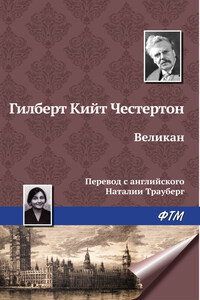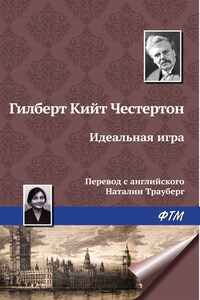You must go back with me to the autumn of 1827.
My father, as you know, was a sort of gentleman farmer in – shire; and I, by his express desire, succeeded him in the same quiet occupation, not very willingly, for ambition urged me to higher aims, and self-conceit assured me that, in disregarding its voice, I was burying my talent in the earth, and hiding my light under a bushel. My mother had done her utmost to persuade me that I was capable of great achievements; but my father, who thought ambition was the surest road to ruin, and change but another word for destruction, would listen to no scheme for bettering either my own condition, or that of my fellow mortals. He assured me it was all rubbish, and exhorted me, with his dying breath, to continue in the good old way, to follow his steps, and those of his father before him, and let my highest ambition be to walk honestly through the world, looking neither to the right hand nor to the left, and to transmit the paternal acres to my children in, at least, as flourishing a condition as he left them to me.
'Well! – an honest and industrious farmer is one of the most useful members of society; and if I devote my talents to the cultivation of my farm, and the improvement of agriculture in general, I shall thereby benefit, not only my own immediate connections and dependants, but, in some degree, mankind at large:– hence I shall not have lived in vain.' With such reflections as these I was endeavouring to console myself, as I plodded home from the fields, one cold, damp, cloudy evening towards the close of October. But the gleam of a bright red fire through the parlour window had more effect in cheering my spirits, and rebuking my thankless repinings, than all the sage reflections and good resolutions I had forced my mind to frame; – for I was young then, remember – only four-and– twenty – and had not acquired half the rule over my own spirit that I now possess – trifling as that may be.
However, that haven of bliss must not be entered till I had exchanged my miry boots for a clean pair of shoes, and my rough surtout for a respectable coat, and made myself generally presentable before decent society; for my mother, with all her kindness, was vastly particular on certain points.
In ascending to my room I was met upon the stairs by a smart, pretty girl of nineteen, with a tidy, dumpy figure, a round face, bright, blooming cheeks, glossy, clustering curls, and little merry brown eyes. I need not tell you this was my sister Rose. She is, I know, a comely matron still, and, doubtless, no less lovely – in your eyes – than on the happy day you first beheld her. Nothing told me then that she, a few years hence, would be the wife of one entirely unknown to me as yet, but destined hereafter to become a closer friend than even herself, more intimate than that unmannerly lad of seventeen, by whom I was collared in the passage, on coming down, and well-nigh jerked off my equilibrium, and who, in correction for his impudence, received a resounding whack over the sconce, which, however, sustained no serious injury from the infliction; as, besides being more than commonly thick, it was protected by a redundant shock of short, reddish curls, that my mother called auburn.
On entering the parlour we found that honoured lady seated in her arm-chair at the fireside, working away at her knitting, according to her usual custom, when she had nothing else to do. She had swept the hearth, and made a bright blazing fire for our reception; the servant had just brought in the tea-tray; and Rose was producing the sugar-basin and tea-caddy from the cupboard in the black oak side-board, that shone like polished ebony, in the cheerful parlour twilight.
'Well! here they both are,' cried my mother, looking round upon us without retarding the motion of her nimble fingers and glittering needles. 'Now shut the door, and come to the fire, while Rose gets the tea ready; I'm sure you must be starved; – and tell me what you've been about all day; – I like to know what my children have been about.'
'I've been breaking in the grey colt – no easy business that – directing the ploughing of the last wheat stubble – for the ploughboy has not the sense to direct himself – and carrying out a plan for the extensive and efficient draining of the low meadowlands.'
'That's my brave boy! – and Fergus, what have you been doing?'
'Badger-baiting.'
And here he proceeded to give a particular account of his sport, and the respective traits of prowess evinced by the badger and the dogs; my mother pretending to listen with deep attention, and watching his animated countenance with a degree of maternal admiration I thought highly disproportioned to its object.
'It's time you should be doing something else, Fergus,' said I, as soon as a momentary pause in his narration allowed me to get in a word.
'What can I do?' replied he; 'my mother won't let me go to sea or enter the army; and I'm determined to do nothing else – except make myself such a nuisance to you all, that you will be thankful to get rid of me on any terms.'
Our parent soothingly stroked his stiff, short curls. He growled, and tried to look sulky, and then we all took our seats at the table, in obedience to the thrice-repeated summons of Rose.
'Now take your tea,' said she; 'and I'll tell you what I've been doing. I've been to call on the Wilsons; and it's a thousand pities you didn't go with me, Gilbert, for Eliza Millward was there!'
'Well! what of her?'
'Oh, nothing! – I'm not going to tell you about her; – only that she's a nice, amusing little thing, when she is in a merry humour, and I shouldn't mind calling her – '
'Hush, hush, my dear! your brother has no such idea!' whispered my mother earnestly, holding up her finger.
'Well,' resumed Rose; 'I was going to tell you an important piece of news I heard there – I have been bursting with it ever since. You know it was reported a month ago, that somebody was going to take Wildfell Hall – and – what do you think? It has actually been inhabited above a week! – and we never knew!'
'Impossible!' cried my mother.
'Preposterous!!!' shrieked Fergus.
'It has indeed! – and by a single lady!'
'Good gracious, my dear! The place is in ruins!'
'She has had two or three rooms made habitable; and there she lives, all alone – except an old woman for a servant!'
'Oh, dear! that spoils it – I'd hoped she was a witch,' observed Fergus, while carving his inch-thick slice of bread and butter.
'Nonsense, Fergus! But isn't it strange, mamma?'









